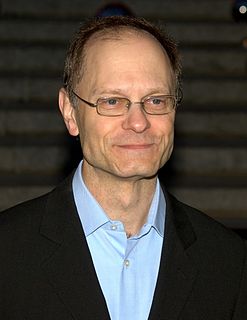A Quote by Brian Greene
There's no way that scientists can ever rule out religion, or even have anything significant to say about the abstract idea of a divine creator.
Related Quotes
The word smart is not applied to all professions, even if you are smart in that profession. No one talks about smart lawyers. They may say a brilliant lawyer. They'll talk about a creative artist. Smart is saved for scientists. It just is. It's not even really applied to medical doctors. It applies to scientists in the lab figuring out what hadn't been figured out before.
I have good idea, for if you meet some person from different religion and he want to make argument about God. My idea is, you listen to everything this man say about God. Never argue about God with him. Best thing to say is, 'I agree with you.' Then you go home, pray what you want. This is my idea for people to have peace about religion.
The Divine Comedy is a political poem and when you say poetry is not about - he's always quoted out of context, that "poetry makes nothing happen," that doesn't mean you shrug your shoulders and don't try to make anything happen. And Dante felt that poetry was engaged, there was a point of view; it's not my point of view, it's orthodox medieval Christianity, and I have my troubles with that. He didn't feel that you could just rule out so important a section of life - we care about these things, and it's out of caring about them that we write poetry.
[Religion] attacks us in our deepest integrity - the core of our self-respect. Religion says that we would not know right from wrong, we would not know an evil, wicked act from a decent human act without divine permission, without divine authority or without, even worse, either the fear of a divine punishment or the hope of a divine reward. It strips us of the right to make our own determination, as all humans always have, about what is and what is not a right human action.
Jesus doesn't say, "The religion founded in my name is the way, the truth, and the life, [and] what people say about me is the way." "Our way of worship, the Christian structure, is not the way," [he would say,] "I am. I am. If you want to know what life is all about, what it's supposed to be, where it's supposed to go, where it's supposed to derive its strength from, don't look at anything people say about me. Don't look at the faith that's been created. Look at my life, which is a life ultimately of sacrificial love."
I think I got a complete picture of what the lives of scientists are like. My father is of the opinion that if scientists are allowed to follow their nose, eventually it results in something. Unfortunately that doesn't always happen. What I came out of it with, in a non-cynical way, was that the scientific process is as messy as anything else. There's nothing wrong with that. That's just the way it is.
For me, writing music is a good way to say what's on my mind. It's less vulnerable in a way, less embarrassing, less exposing to the idea of seeing someone's reaction. The thing about it, though, is you need to be ready... especially if you've got something you're burning to say... even if it's just what some people might think is just a small moment that nobody'd ever bother with or notice.
If you have anything to say, anything you feel nobody has ever said before, you have got to feel it so desperately that you will find some way to say it that nobody has ever found before, so that the thing you have to say and the way of saying it blend as one matter--as indissolubly as if they were conceived together.
Nothing ever guarantees you anything-that's my rule. My other rule is never believe anything that anyone tells you, and then you'll never be fooled. It's not as cynical as it sounds; it's just that people always say something for a reason-maybe a nice reason, maybe a devious reason-so on that level, you can't take things at face value.
I think what you see a lot of in American religion, even in areas of American Christianity that don't go all the way with Osteen to the idea that God wants you to have this big house and so on, the nature of American religion right now, the fact that it is so non-denominational and post-denominational, the most successful churches have to be run more like businesses than ever before. I think that just exposes Christians to a constant temptation to think about the ministry more as a business than they sometimes should.
We [Americans] have secularized the public life of our country in such a way to say something is religious is something negative. Religion has now turned into a way to discredit people. It is futile and dishonest to argue about religion. Religion is a phenomenological umbrella; there are all kinds of religions. It makes a difference when your religion is telling you something true or something false.





































